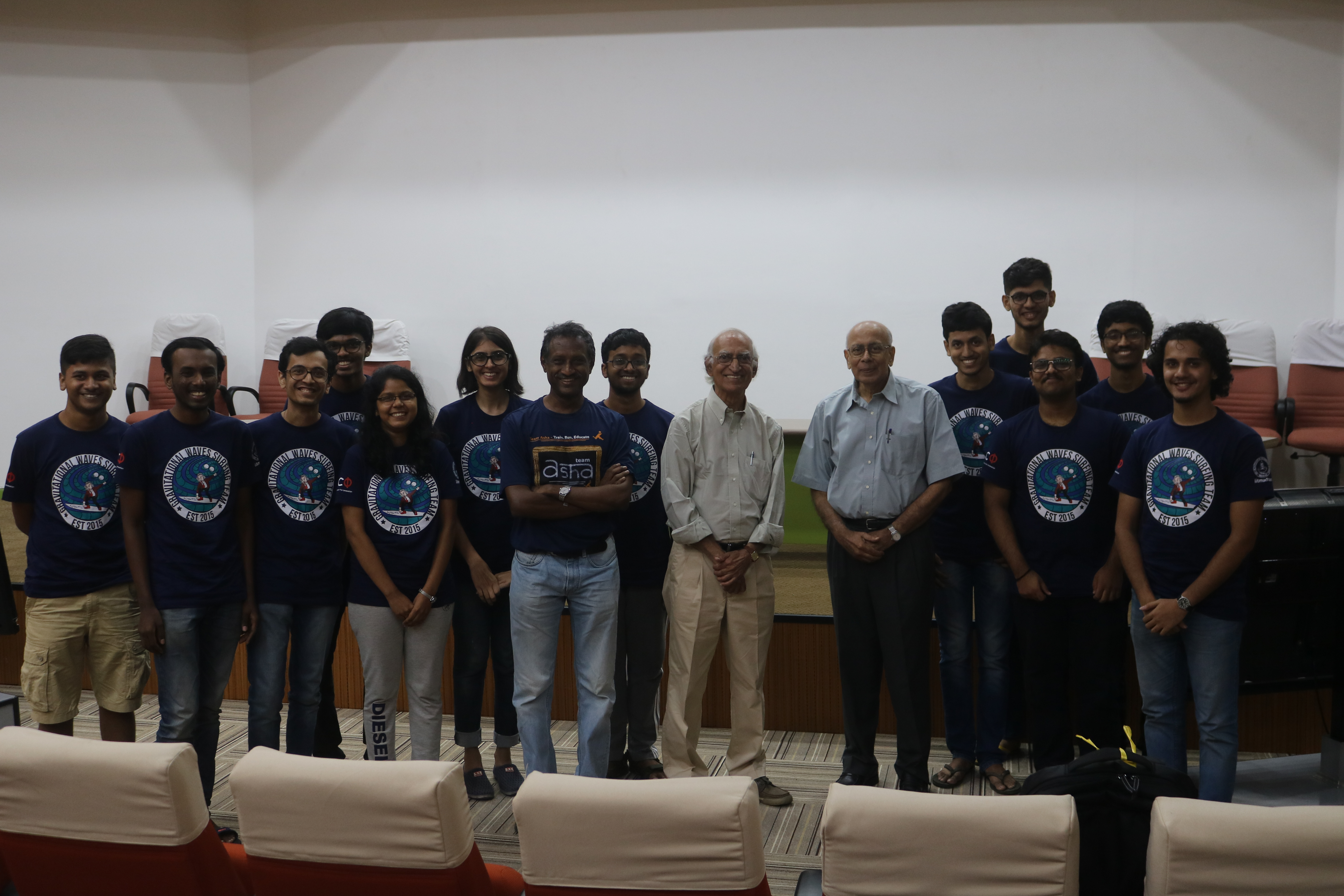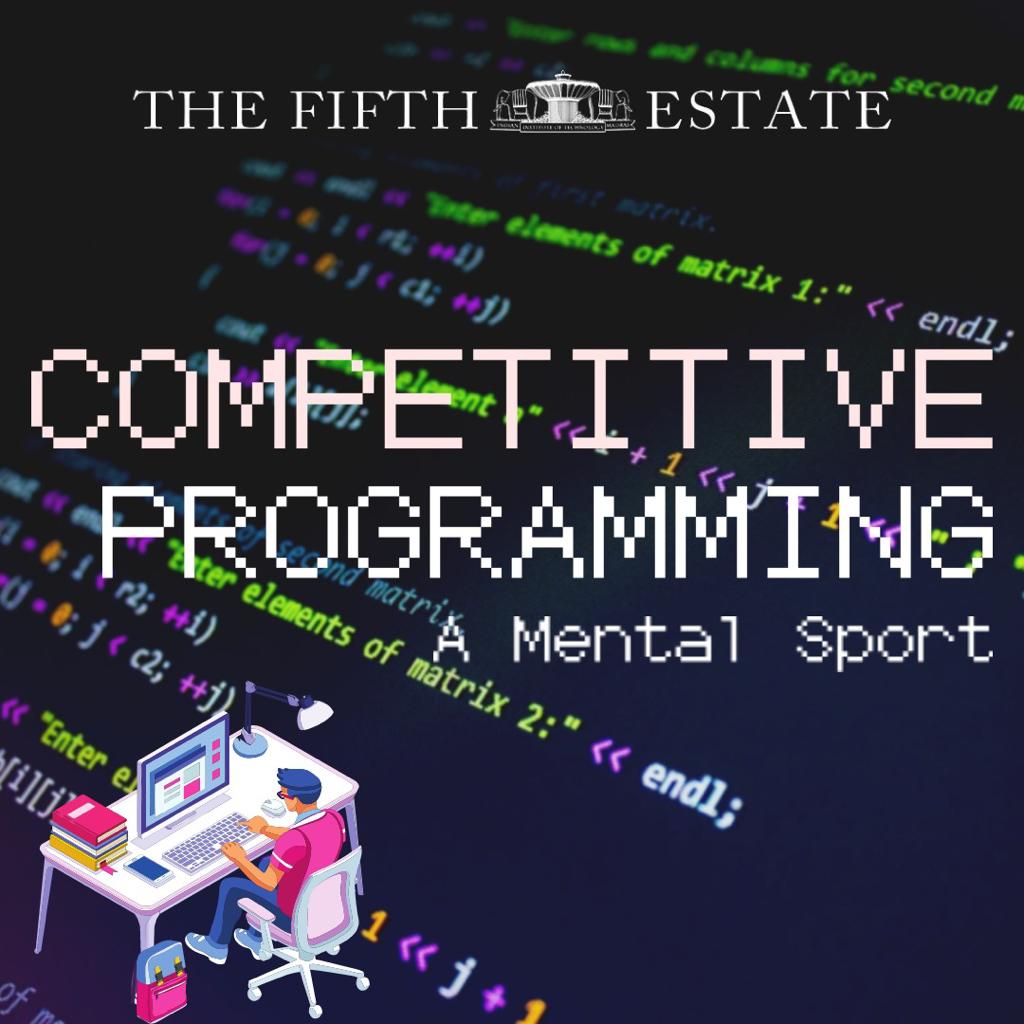Late morning of 18th August, two members of the Fifth Estate got the chance to meet Dr. Duvvuri Subbarao, former Finance Secretary and ex-Governor of the Reserve Bank of India. He had just about a day to spend on campus and had arrived to deliver an Extra Mural Lecture alongside Dr C Rangarajan. Amidst tea and pleasantries, they shared a wonderful conversation in the lounge of the Bose Einstein Guest House on campus. We thank the team at Extra Mural Lectures (EML) for hosting the speaker with impeccable hospitality and facilitating our interaction with him. Personal experiences at IIT, career insights and a lot of economics was discussed. The excerpts of that conversation can be found below:
Good morning from the Fifth Estate! It is a wonderful opportunity for T5E to interview you and get to learn so much from the answers that you are going to provide for us.
One of the things that I found most interesting about your profile is that as a civil servant, you would have had the opportunity to work in grassroots level administration, directly interacting with stakeholders who are affected by these policies. After that when you don the hat of a central planner/banker, how do these bottom-up approaches influence your policy-making?
As you know, I had the privilege of serving in the IAS. What sets the IAS apart from all other civil services is the unique opportunity it provides to officers to work on the frontlines, experience how the vast majority of people in the country live, understand their problems, hopes and aspirations, and make a difference to their lives. This field exposure becomes extremely useful as IAS officers move up from filed positions focusing largely on policy implementation to secretarial positions with responsibility for formulating policies and translating those policies into programmes. Let me give a couple of examples. Say, your task is to design policies for deepening microfinance in the vast hinterland of the country. You will do a much better job of it if you had actually seen how microfinance operates at the grassroot level. Similarly, you can read all the reports and talk to any number of people about the mid-day meal programme but nothing substitutes for your own experience of visiting schools, seeing the children and teachers and having an idea of the school infrastructure. More concretely, take the example of my main responsibility as Governor of RBI which was to maintain low and steady inflation. Rising prices hurt everyone but they hurt the poor most of all. I believe my field experience helped me see the inflation problem in human terms rather than just as a number.
As students of various disciplines, we are constantly reminded that there is a dissonance between theory and practice. In the practical domain, you have been involved with various levels of public administration and banking. But what is surprising is your contribution towards academia and theoretical scholarship; be it your books or the various teaching positions you have held. How do you manage to reconcile theory and practice; how do the two feed off each other?
Rather than ‘reconciling theory and practice’, I’d say it’s a question of ‘blending theory and practice’. Human progress has been achieved by the advance of knowledge, and knowledge has advanced by the synergy between theory and practice. This is true of hard sciences as well as social sciences. Take the case of the famous Michelson Morley experiment in physics which found that the velocity of light is constant. This led to Einstein’s Theory of Relativity, an iconic case of practical knowledge triggering theory. In the reverse direction – from theory to practice – you have the case of the Higg’s Boson – the God particle – which was predicted by theory long before it was discovered in practice. The blending of theory and practice operates differently in social sciences like economics simply because they are not exact sciences. For example, I can’t change the mass of an electron by my behaviour but I can change the price of a derivative by my behaviour. Because they are subject to human behaviour which is often capricious, in social sciences, theory has to constantly track practice. The theory of inflation, for example, has to be constantly upgraded by how inflation expectations move in practice.
We stopped for a quick tea break during this part, thanks to the kind staff of BEG 🙂
It is astounding that the global financial crisis of 2008 happened less than a week after you assumed office. I assume that it was a tumultuous time for the economy as well as a great personal challenge you had to overcome. In hindsight, our economy remained relatively stable and safe as opposed to our counterparts. Can you share what went on in your head at the time?
Too many things went on in my mind to capture in a short answer. But let me focus on just one thig – which is the challenge I faced in establishing my credibility. The collapse of Lehman Brothers in September 2008 brought the global financial system to a near death experience. It was not the case that it didn’t hit India. We too were hit by the crisis although much less than western countries which were at its epicentre. Our growth declined, exports nosedived, the rupee fell and the current account deficit widened. There was concern and anxiety in the larger public about where the global economy was headed and whether emerging economies like India could withstand the shock. And mind you all this within the first two weeks of my governorship. I was new to the job and was on a steep learning curve. Even the senior management in the RBI did not know me well not to speak of the larger public, particularly the financial markets. There was concern in the markets about whether a greenhorn governor like me could lead the economy out of this extraordinary crisis. In short I had no credibility and the crisis didn’t give me the time to establish my credibility. When you have no credibility, even if you do the right things, they will not have the desired effect. The challenge I faced in establishing my credibility was one of the big things that played on my mind during those tumultuous months.
Being from IITs ourselves, we find it difficult to narrow down on career decisions. How did you choose your area of exploration, first physics then administration then banking, and how do you think one can do that in the college environment?
Lots of students ask me that question and I am wary of giving a precise answer for fear of misleading them. In the last over 50 years since I was at IIT, everything has changed. The world has changed, India has changed, IITs have changed, and most of all the opportunities and challenges of people entering the job market have changed.
But in response to the way you have framed the question, I want to say two things in broad terms. First, it’s not possible, when you are starting off on your career when you are around 25 years old, to map your entire career. It’s not as if when I joined the IAS, I planned to become the Governor of RBI and worked my way up according to a game plan. Career progression happens in steps, some by design, and some by default. You must have a broad idea of where you want to go and a plan for operationalizing that plan but it should be sufficiently flexible to accommodate changes that happen along the way.
The second thing I want to say is that the nature of work, and therefore the nature of careers, is changing. Experts working on the future of work say that in the future people are not going to have long steady careers in one stream. People will shift from one stream to another. For example, if you are an electrical engineer, it’s not as if you are going to be a specialist electrical engineer all your life. Maybe after a few years there, you will move into the field of higher education and perhaps from there onto skill development. All this in response to changing technology and shifting demands. So today’s students have to be future ready, be able to spot opportunities, acquire new skills and move from one stream to another on the go. One of the many things students have to do in order to be future ready is to focus on breadth rather than depth. Spread your net wide, learn as many things as you can and take a wide variety of courses rather than stick to one specialisation.
Most of us see our placements and prospects be dimmed by the ongoing recession and threat of automation. How do you think the youth of this country can build a career that is resilient to economic shocks and fluctuations?
My answer to this question takes off from my earlier response. I can quite understand student concerns about jobs and career prospects given the rapid changes both on the economy and technology fronts. Earlier, machines did the grunt work replacing low end jobs. But now robotics, 3-D printing, machine learning and AI are threatening to take away even high-end manufacturing and service jobs. But one point for reassurance is that machines are limited by what humans have invented. Humas can still keep ahead by inventing new knowledge and new processes. There is no reason to be despondent as long as one is ready to move up the value chain. If past experience is any guide, for every job lost to machines, there will be more than one job created for humans higher up the value chain.
Looking back, what do you consider to be the most significant achievements or contributions during your time as the Governor of RBI? Are there any decisions or policies that you would approach differently if given the chance?
The core mandate of a central bank is to maintain price stability, financial stability and macroeconomic stability. Governors are judged by how well they deliver on this mandate. I will leave it to others to evaluate my performance in this regard.
But leaders are also judged by what they do beyond their core mandate – whether they have instituted lasting improvements in the organisation. During my tenure, I attached great importance to demystifying the RBI. To most people, the RBI is a black box and they don’t realise how RBI policies and actions impact their everyday lives. I took it upon myself to communicate to people in plain non-technical language what the RBI does and why it matters to them. I also tried to institutionalise the effort by having the entire organisation work towards this goal. I was driven by the view that only when the larger public understands what the RBI does, can they be held to account for results.
In response to the second part of your question, to say what I’d have done differently is tricky. Because you are asking the question with the benefit of hindsight whereas I was operating in real time within the universe of knowledge at that time. Thinking back, I probably would do many things differently. Most importantly I’d have focussed more on communication. But of course, I am conscious that life seldom offers second chances.
While speaking about demystifying the RBI, could you share some insights into the collaborative dynamics between the central bank and the government, particularly during times of economic challenges?
Central bank independence rests on an important principle. The core mandate of a central bank, any central bank, as I said earlier, is to maintain price, financial and macroeconomic stability. This requires taking a long-term view of the economy and implementing tough measures in the interest of long-term sustainability even if these measures may cause some pain in the short term. Such a responsibility cannot be given to politicians whose time horizons are dictated by electoral cycles and who are loath to implement unpopular measures. That’s the rationale for an independent central bank free of political compulsions.
That’s the theory. It doesn’t work that neatly in practice though. Central bankers are unelected and the mechanisms by which they render accountability are weak. Politicians believe that since they have been elected by the people and are accountable to people, they should have a say in central bank decisions. In some sense this tension is hardwired into the government-central bank nexus. How it operates in practice is a function of the economic situation and the chemistry between leaders on both sides.
While in normal times, differences are common, in crisis times when people are anxious and bewildered, it is important for governments and central banks to work in concert, and importantly demonstrate that they are working in concert.
Given your experience, what advice would you offer to aspiring economists, policymakers, and central bankers who aim to contribute to their countries’ economic development and stability?
I’ve already given more advice that I ought to have. Just to reiterate, don’t be under the impression that you can micromanage your careers. Have a broad goal but be flexible. Always try to be future ready which means learning all the time. Keep your ear close to the ground because there is no substitute for grass root knowledge and understanding. And do whatever you have to do with passion and professionalism.
I assume you are returning to an IIT after a long break. How have IITs changed from then to now?
I graduated from IIT fifty years ago. In the course of this half century, the world has changed, India has changed and IITs have changed. Today, IITs have a much bigger brand equity than during my time. The JEE is much more competitive and an IIT education is much more of a prized opportunity. Information and knowledge dissipation are different today from fifty years ago. Everyone today has a smart phone which is at least a thousand times more powerful than the single mainframe computer we had for the entire institute. The challenges you face are different as are your opportunities. But one thing that has not changed in this half century is the value system that an IIT education is based on.
The interview concluded with a group picture to which he kindly obliged. We finished our tea, exchanged closing remarks and the speaker made his way to explore the rest of the campus.

Edited by Garima Sane
Designed by Yash Suryavanshi




